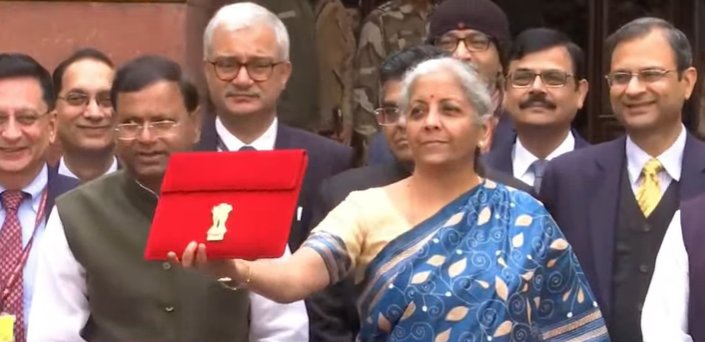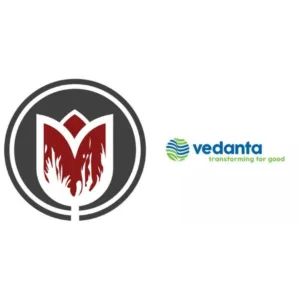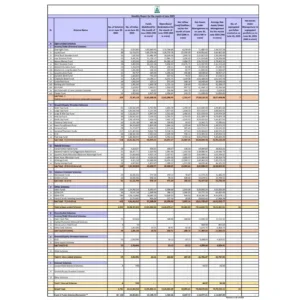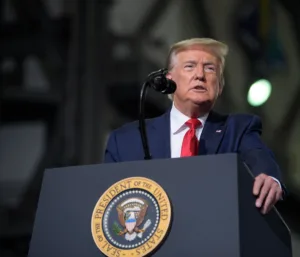
FM Nirmala Sitharaman is set to deliver her sixth Budget, the last for Modi government’s second term, unveiling the traditional ‘bahi khata’ before her speech.
Nirmala Sitharaman, the Finance Minister, will soon present her sixth Budget. The speech is expected to emphasize rural and agriculture sector schemes, aligning with the approaching general election by May. Experts are optimistic about the continuation of capex momentum, a key factor in India’s GDP growth amid global economic uncertainties.
Anticipations for today’s interim budget include a focus on boosting the defense, space, and infrastructure sectors, as recommended by the IMC Chamber of Commerce and Industry.
Fintechs Anticipate Ongoing UPI Subsidies Amidst Soaring Transaction Growth
Fintechs are hopeful for ongoing subsidies on UPI transactions, given the substantial growth in payments. The government’s support, seen in the Rs 1,500-crore scheme announced in the 2021 Union Budget, and the subsequent increase to Rs 2,137 crore in 2022, aims to compensate for MDR losses and encourage digital transactions.
All India Vyapar Sangh president, Satish Bansal, asserts that no government has significantly supported small businesses since Independence. He emphasizes the demand for relief in the MSME sector.
Ajit Mangrulkar from IMC emphasizes that the primary focus should be on infrastructure
IMC Chamber Of Commerce And Industry’s Director General, Ajit Mangrulkar, emphasizes infrastructure as the key focus ahead of the Union Interim Budget. He praises the government’s recent efforts and anticipates continuous investment, highlighting the multifaceted benefits it brings to the country.
Financial Minister Nirmala Sitharaman delivers the Union Interim Budget 2024-25 in Parliament.
FM Sitharaman notes a positive transformation in the Indian economy over the last decade
FM Sitharaman: Over the past decade, India has undergone positive transformation, overcoming significant challenges with the mantra of “Sabka Saath, Sabka Vikaas” under the leadership of Prime Minister Narendra Modi.
FM Nirmala Sitharaman: Our vibrant nation holds high aspirations, pride in the present, and hope for the future. Free ration for 80 crore people has eradicated food concerns. Minimum support prices for farmers’ produce have been consistently increased. We anticipate another strong mandate for our government due to its remarkable efforts.
FM Sitharaman: Ensuring transparency, benefits are distributed without discrimination, addressing systemic inequalities. Focus on four pillars: poor, women, youth, and annadatas for national progress.
FM Sitharaman: “Garib Kalyan is desh ka kalyan.” Empowering the poor, moving away from entitlement. Sabka Saath strategy has lifted 25 crore people from multidimensional poverty in the last decade.
FM Sitharaman: 4 crore farmers benefit from PM Fasal Bima Yojana, providing crop insurance and supporting annadatas in food production for the nation and beyond.
FM Sitharaman: 4 crore farmers receive crop insurance through PM Fasal Bima Yojana. 1361 mandis integrated with a trading volume of 3 lakh crore. PM Kisan Samman Yojana offers direct financial aid to 11.8 crore farmers annually, emphasizing youth empowerment for national prosperity.
FM Sitharaman: Rapid development of all infrastructure forms – digital, social, and physical. Women’s empowerment accelerates with 30 crore Mudra Yojana loans. 70% of rural PM Awas Yojana houses given to women. Proactive inflation management keeps it within bounds. Amid global challenges post-Covid, India, as the G20 President, successfully navigates crises in food, fertilizers, and finances.
FM Sitharaman: India-Middle East-Europe trade corridor, a game-changer, announced at G20 Summit. Vision for Viksit Bharat is prosperity in harmony with nature, providing opportunities for all. Next 5 years promise unprecedented development, aiming to become a developed country by 2047, leveraging the trinity of democracy, demography, and diversity.
FM Sitharaman: Our government commits to economic policies sustaining growth, powering investment, and fulfilling aspirations. Next-gen reforms, consensus-building with states and stakeholders for effective implementation. Policy priority: training MSMEs for global competition and preparing the financial sector for meeting investment needs.
FM Sitharaman: FY25 capex target set at Rs 11.1 lakh crore, an 11.1% increase. This surpasses the current fiscal year’s budget of Rs 10.01 lakh crore, representing a 33.5% rise from the previous year. In support of innovation, a corpus of Rs 1 lakh crore with 50-year interest-free loans aims to provide long-term financing for private sector research in sunrise sectors, creating a golden era for our tech-savvy youth.
FM Sitharaman: Over the last decade, the Centre has revitalized the aviation sector, doubling the number of airports to 149.
The government plans to enhance the EV ecosystem, supporting manufacturing and charging infrastructure, and introduce a bio-manufacturing scheme for green growth.
Key rail projects, including Metro Rail and Namo Bharat, will expand to more cities, with 40,000 rail bogies converting to Vande Bharat coaches.
Tourism projects, especially in islands like Lakshadweep, will be initiated, emphasizing opportunities in spiritual tourism. States will be urged to develop iconic tourist spots.
FM Sitharaman: FY24 fiscal deficit revised down to 5.8% of GDP, with revised estimates of revenue receipts surpassing budgeted expectations. The FY25 fiscal deficit target is set at 5.1% of GDP. Gross market borrowing for FY25 is pegged at Rs 14.13 lakh crore, with net borrowing at Rs 11.75 lakh crore. Tax receipts for the financial year 2024-25 are estimated at Rs 26.02 lakh crore.
FM Sitharaman: The GST tax base has doubled, and the monthly collection has almost doubled to Rs 1.66 lakh crore this year. No changes are proposed in tax rates for direct and indirect taxes, including import duties.
FM: Revised revenue receipts estimate exceeds the budget. FY25 total receipts set at Rs 38.80 lakh crore. Gross government borrowing at 14.1 lakh crore. FY25 gross market borrowing at Rs 14.13 lakh crore, with net borrowing at Rs 11.75 lakh crore.
🚨 CRISIL on Interim Budget 2024:
• Infrastructure capex sees an 11.1% increase, below previous years’ rates, emphasizing the need for private sector involvement in sustaining growth momentum.
• India’s reliance on imports for 55-60% of edible oil consumption poses vulnerability. Investments in high-yielding varieties, market linkages, and insurance can curb import dependence.
• Widespread adoption of nano DAP could reduce the fertiliser subsidy bill, costing 50-55% less than conventional DAP. Phosphatic fertilisers’ subsidy constitutes 18-20% of the overall fertiliser subsidy bill, per CRISIL.
Big numbers from Interim Budget 2024
1. FY25 Fiscal Deficit: 5.1% of GDP
2. FY24 Fiscal Deficit: Expected at 5.8% of GDP
3. Fiscal Goal: Aim to reduce deficit below 4.5% by FY26
4. FY25 Capex Outlay: 3.4% of GDP
5. FY24 Gross Market Borrowing: Projected at Rs 14.1 lakh crore
6. Tax Withdrawal: Pre-FY10 disputed tax demands up to Rs 25,000 withdrawn
7. Coal Gasification: Aiming for 100-tonne capacity by 2030
8. Housing Target: Constructing two crore houses in the next five years.
🚨 Moody’s: No major debt affordability improvement in India justifying sovereign ratings upgrade post-budget. India’s 2024/25 GDP growth projected at 6.2%. Moody’s affirmed ‘Baa3’ rating in August, signaling stable economic.
Bringing you the latest updates on finance, economies, stocks, bonds, and more. Stay informed with timely insights.













Be First to Comment